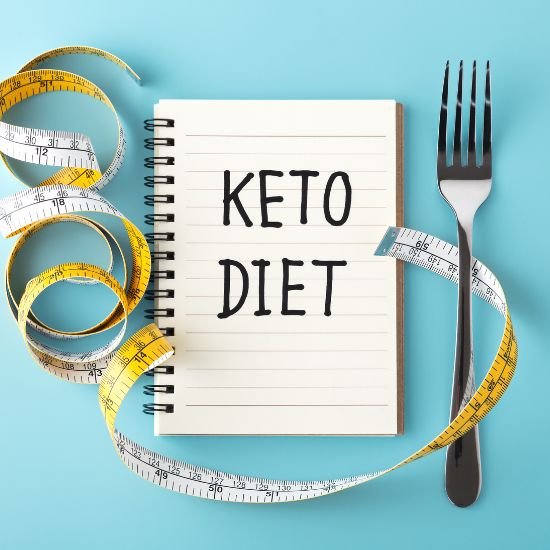
Can You do Intermittent Fasting and Keto both ?
Share

Keto and intermittent fasting , Intermittent fasting keto , Intermittent fasting on keto , Intermittent fasting plus keto.
Intermittent fasting is a latest & and widely popular practice, especially in the weight loss and health communities. The same can be said of the ketogenic diet and all its benefits.
However, you might be surprising if it’s possible to combine intermittent fasting with your ketogenic diet. The answer to this is a big yes !
Intermittent fasting and ketogenic diet can easily go hand-in-hand, as they both complement each other well. In fact, you can bump up the benefits of your ketog diet even more by incorporating intermittent fasting and vise versa.
Read on to learn more about the details of how both can be used together. First, let’s discuss what intermittent fasting is.
Basics of Intermittent Fasting
There are different types of intermittent fasting, but the most common involves only eating within a certain window of time each day.
For example, you might only eat between 12pm and 6pm each day, giving you a 6-hour “feeding” window when you eat all of your calories for the day. That means you’ll be fasting for 18 hours in between. Your intermittent fasting ratio would then be 18/6. That window can be shrunk or expanded depending on your needs and preferences but typically, it’s somewhere between 4-7 hours of feeding during the day. Intermittent fasting is a great practice for weight loss, appetite control, digestion, and health on its own. When it’s combined with the keto diet and its benefits, the results can be even better.
Check out this article for a full breakdown of intermittent fasting vs ketosis.
Benefits of Fasting on the Ketogenic Diet .
Here’s why doing intermittent fasting can be so helpful keto:
TOP 8 BENEFITS OF FASTING :
- Purging of Cancerous or Precancerous cells.
- A rapid shift into Nutritional Ketosis.
- Decrease in Fat Tissue .
- Increased Gene expression for longevity & healthspan.
- Autophagy & Apoptotic cellular clearing /Repair.
- Improved insulin sensitivity .
- Decrease in oxidative stress & Inflammation .
- Enhanced cognitive effects & Neuroprotection .
ENTERING KETOSIS SOONER Since the keto diet is designed to force the body into running on ketones from a very low carb intake, you’re already “fasting” yourself of carbs and glucose. This mimics the actual fasting that takes place with intermittent fasting.
So, if your aim is ketosis, intermittent fasting can assist you get into ketosis even faster. Simultaneously, the ketogenic diet makes intermittent fasting more doable because your body is already adapted to fasting with ketones.
In addition, most people naturally eat less frequently on keto because of the high satiety level, so you’re likely already used to bigger windows without food.
AVOIDING KETOSIS SIDE EFFECTS
If you’re completely new to ketosis or getting back into it, beginning with intermittent fasting can help you avoid some common uncomfortable side effects, such as the keto flu, that come from depleting glucose stores and switching to ketones. (Another great way to reduce side effects is by taking exogenous ketones!) On the flip side of that, eating keto can make your periods of fasting more manageable. For example, someone who is eating a diet higher in carbs will likely have more discomfort with intermittent fasting as the body constantly switches between glucose for fuel and ketones for fuel.
By continuing to eat ketogenic diet even during feeding periods, you can keep your body constantly running on ketones.
LOSING WEIGHT FASTER
One of the biggest reasons people turn to intermittent fasting is for weight loss. That’s because fasting can help you break through weight loss plateaus in a few different ways: Our bodies can only comfortably take in a certain amount of calories at once, so limiting your intake window naturally limits total daily caloric intake. The smaller eating window also helps eliminate unnecessary snacking, especially late at night. Eating a high-fat keto diet and being in ketosis reduces appetite and increases satiety levels. It’s much easier to do intermittent fasting when this is the case, versus a diet full of carby foods that just increase cravings and snacking. And while you’re eating all of that healthy, satisfying fat, your body is breaking down the extra stored fat to be used for energy—both while you’re actually fasting and while you’re “fasting” with fats through the ketogenic diet.
STABILIZING BLOOD SUGAR
Alternating between glucose and ketones for energy can lead to spikes in blood sugar, leading to brain fog, mood swings, low energy, and other not-so-fun side effects. Someone eating a standard diet might experience this with intermittent fasting, but eating a ketogenic diet lets you avoid them by staying in ketosis even when you’re eating.
CREATING SELF-HEALING IN THE BODY
Intermittent fasting activates something called autophagy in the body, which is a phenomenon where it literally eats its own cells and tissues—in a good way. It helps the body essentially “clean house,” removing harmful and toxic compounds and recycling damaged proteins.
Different processes of autophagy happen when two things happen:
- The body is starved
- Protein and carbs are restricted
Both of these are happening during intermittent fasting & keto diet.
Combining the two allows us to reap the benefits of autophagy in a way that’s efficient and healthy.
Keto and intermittent fasting - Fasting on Keto Tips
If you want to start combining intermittent fasting with your ketogenic diet, here are some tips for success:
Make sure you still eat enough. Intermittent fasting does help you naturally eat less during the day, but be sure you’re still eating nutritious ketogenic foods to avoid any deficiencies or metabolic issues.
Calculate ideal caloric intake and your ketogenic macros for each day, then track them to make sure you’re getting sufficient nutrition. Measure your ketone levels. Even though fasting can really help you stay in ketosis, it’s still important to make sure you aren’t eating too many carbs or doing anything else to kick you out of ketosis. Track your ketones often to make sure you’re actually in ketosis !
Take Home Message
If intermittent fasting feels distressing at first, give yourself time to adjust into it . Your body will get used to fasting and you’ll find that as time goes on, and the longer you eat a ketogenic diet, you’re not as hungry in between feeding periods as you used to be. And like we said above, track your ketones !
While intermittent fasting is not a important part of eating a keto diet, it’s definitely compatible (and highly suggested ) if you want to double down on benefits and meet some new health goals !
















